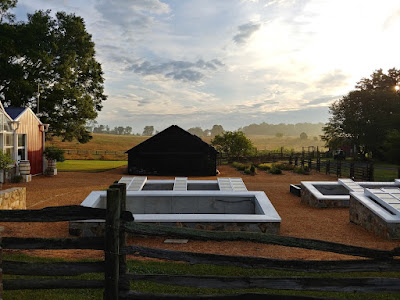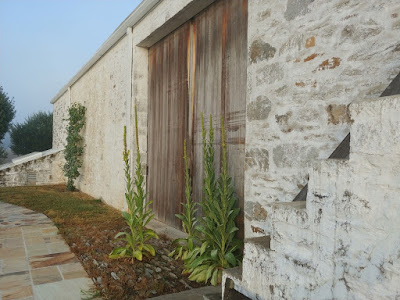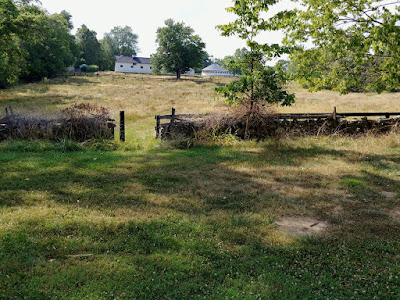Danielle was kind enough to meet me at 6am on the other side to show me the trails, as yesterday I tried to do it on my own and couldn't find them!
She showed me where things were that I was curious about and then I saw other curious things (like those glass bells in the last row to the right).
This is when I tried yesterday but wasn't sad to walk around the outside of the treasured building I can't go into until my quarantine ends: the library! At least, I think this is the library.
This is kind of how I feel.
I think this was a day before yesterday but I can't remember. So many beautiful stone walls, a sign of wealth on a certain type of land (full of rocks that were pulled up to cultivate the land for a certain thing). This is part of the production farm from which my lovely veggies come from. This is a small bit of all of this, which used to be a plantation with 24 slaves. Of course before then it was a mix of different types of land that was settled by Native people. I still haven't sorted out how to benefit from this kind of wealth built on yikes.
Night two? The first day and a half felt like a month and now already, almost a week in?
Only one hemp plant survived in the walled garden. They got permission to grow it and only the one made it. Inside are plants for dye, paper, and cut/dried flowers. Some of the plants make more sense than others but it's a grand experiment, right next to the biodiversity part where they are growing everything for seed. The corn TOWERS.
I'm not sure I'll use any of this right away as I don't have a beater and I'm still in my ramping up mode. The studio is mostly set up but I've been hiding out in the house because my jiseung project feels like the most important thing to get to.
I got here with soooo many things I needed/wanted/expected to do. I arrived and wanted to throw it all away and burn it. Most of that involves the work to be done on the computer.
This nearly broke my hands but I'm...
DONE!
This was yesterday morning, the horses who belong to the people on the other side. The heat and humidity is not my favorite climate but I do love the misty thick mornings.






















































